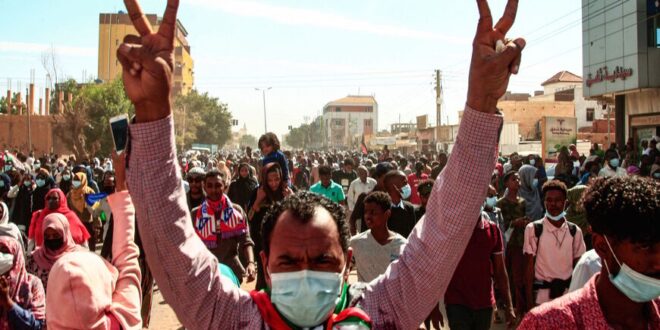Abdalla Hamdok’s resignation is the latest blow to Sudan’s transition to democracy since the Oct. 25, 2021, military coup.
Sudan’s Prime Minister Abdalla Hamdok resigned late Sunday, Jan. 2, amid a political impasse with leaders of the country’s military junta and a crackdown on protesters calling for full civilian rule, prompting calls from the United States and others for the appointment of a new civilian premier.
Timeline:
In April 2019, popular protests forced longtime Sudanese dictator Omar al-Bashir to step down.
The Sudan Constitutional Declaration (August 2019) established a transitional Sovereignty Council composed of both civilian and military leaders to guide the country to elections in July 2021.
On Oct. 3, 2020, the transitional government negotiated the Juba Peace Agreement with armed opposition forces that had been opposed to Bashir; this was considered another major step toward stability in Sudan.
On Oct. 23, 2020, Sudan, Israel and the United States announced that Khartoum and Jerusalem had agreed to normalize relations.
On Dec. 14, 2020, the United States issued a decision to remove Sudan from its list of state sponsors of terrorism after 27 years.
On March 31, 2021, US Secretary of State Antony Blinken welcomed a “new chapter” in US-Sudan relations after Khartoum paid $335 million to compensate victims of al-Qaeda terrorism in the 1998 bombings of the US embassies in Kenya and Tanzania and the USS Cole in Yemen in 2000.
The World Bank and the IMF approved Sudan receiving debt relief under the enhanced Heavily Indebted Poor Countries (HIPC) Initiative.
On Sept. 21, 2021, Hamdok reported that there was an attempted coup by “factions inside and outside the armed forces.”
On Oct. 25, 2021, Lt. Gen. Abdel Fattah Burhan, head of Sudan’s armed forces, orchestrated a military takeover of the transitional government, just as Hamdok, per the constitution, was to take over the chairmanship of the Council, sparking international condemnation and protests in Khartoum, provoking a violent crackdown by Sudanese security forces.
On Oct. 25, 2021, Washington suspended $700 million in economic assistance, and on Oct. 27, the World Bank paused all disbursements to Sudan.
On Nov. 21, Hamdok was released from house arrest and appeared to reach an agreement with Junta leaders, but he was opposed by a dozen deposed Sudanese government ministers, Sudan’s pro-democracy movement, and the largest political party, the Islamist Umma Party.
On Jan. 2, 2022, Hamdok resigned just hours after security forces killed at least two more protesters outside Khartoum on Sunday. Fifty-six people have been killed and hundreds injured in the unrest since the October coup, according to the Central Committee of Sudanese Doctors.
International Response:
The United States, which has backed international efforts to support Sudan’s economic recovery and transition to democratic rule, called for the appointment of a new civilian prime minister in line with the country’s 2019 constitution. “After PM Hamdok’s resignation, Sudanese leaders should set aside differences, find consensus and ensure continued civilian rule,” the State Department said Monday. “Sudan’s next PM and Cabinet should be appointed in line with the constitutional declaration to meet the people’s goals of freedom, peace and justice.”
The UN’s top envoy for Sudan, Volker Perthes, said in a statement Monday that he “regrets” but “respects” Hamdok’s decision to step down, praising the “significant achievements” made during his tenure. Still, Perthes expressed concern that Sudan’s ongoing political crisis could further derail the country’s transition to democracy and urged “security forces to abide by their obligations under international law and strictly uphold the rights of protestors to freedom of expression and peaceful assembly.” Perthes added, “The lack of trust among Sudanese actors needs to be overcome through a meaningful and inclusive dialogue,” which the UN is ready to support.
What’s at Stake:
The United States, the World Bank, the African Union and other international bodies paused billions in debt relief and aid to Sudan following the Oct. 25 coup. The fate of Sudan's economic recovery remains in limbo. What’s Next:
Military leaders now hold all the cards, but the pro-democracy movement shows no sign of backing down. Activists have planned another protest march to the presidential palace on Tuesday, with demonstrations to continue "until victory is achieved," according to Agence France-Presse. Eurasia Press & News
Eurasia Press & News



